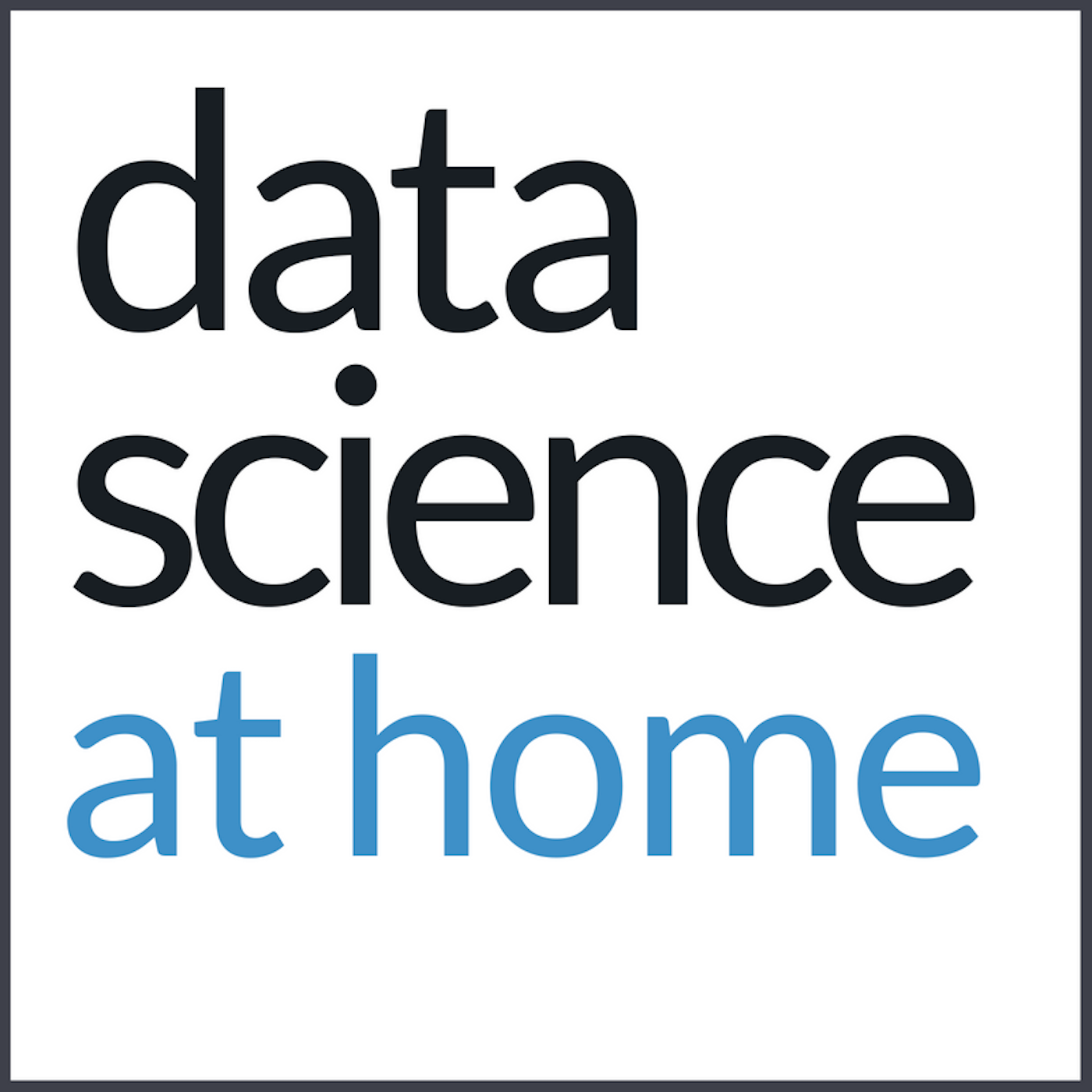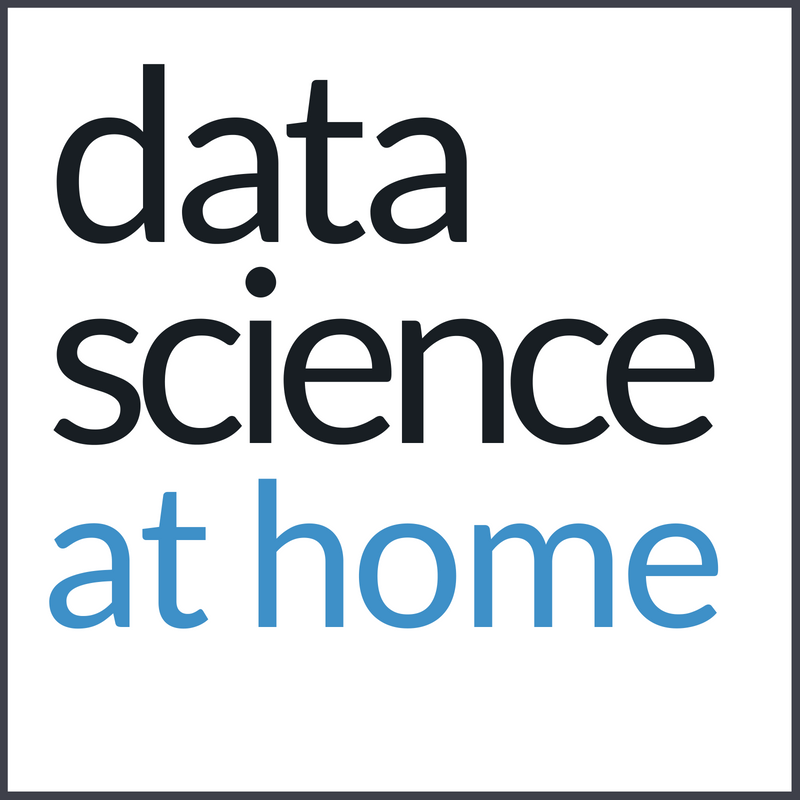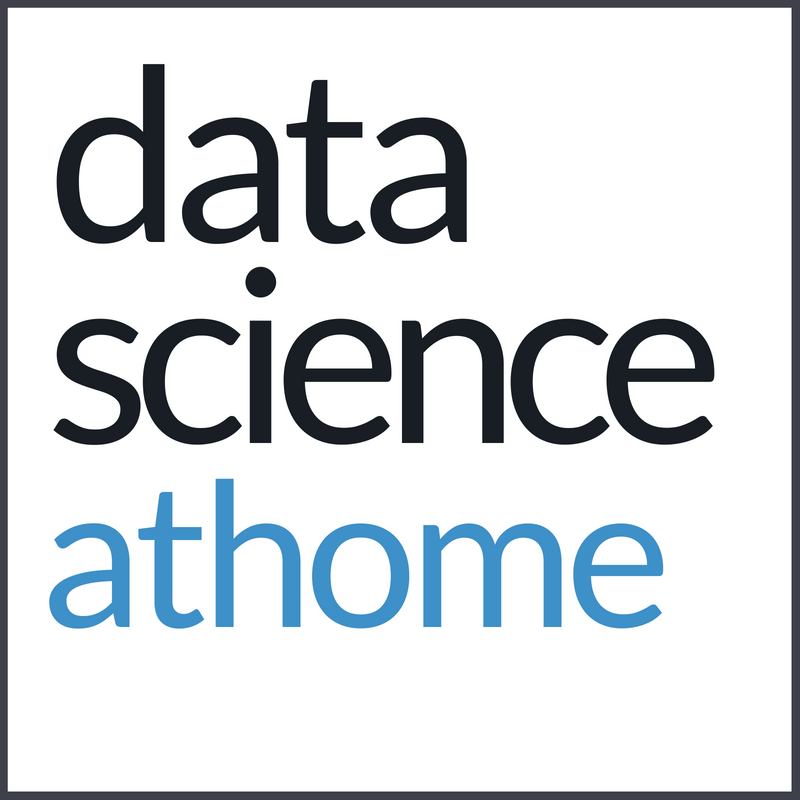Data Science at Home
Episodes

Tuesday Jul 24, 2018
Episode 40: Deep learning and image compression
Tuesday Jul 24, 2018
Tuesday Jul 24, 2018
Today’s episode will be about deep learning and compression of data, and in particular compressing images. We all know how important compressing data is, reducing the size of digital objects without affecting the quality. As a very general rule, the more one compresses an image the lower the quality, due to a number of factors like bitrate, quantization error, etcetera. I am glad to be here with Tong Chen, researcher at the School of electronic Science and Engineering of Nanjing University, China.
Tong developed a deep learning based compression algorithm for images, that seems to improve over state of the art approaches like BPG, JPEG2000 and JPEG.
Reference
Deep Image Compression via End-to-End Learning - Haojie Liu, Tong Chen, Qiu Shen, Tao Yue, and Zhan Ma School of Electronic Science and Engineering, Nanjing University, Jiangsu, China

Tuesday Jul 17, 2018
Episode 38: Collective intelligence (Part 2)
Tuesday Jul 17, 2018
Tuesday Jul 17, 2018
In the second part of this episode I am interviewing Johannes Castner from CollectiWise, a platform for collective intelligence. I am moving the conversation towards the more practical aspects of the project, asking about the centralised AGI and blockchain components that are essential part of the platform.
References
Opencog.orgThaler, Richard H., Sunstein, Cass R. and Balz, John P. (April 2, 2010). "Choice Architecture". doi:10.2139/ssrn.1583509. SSRN 1583509
Teschner, F., Rothschild, D. & Gimpel, H. Group Decis Negot (2017) 26: 953. https://doi.org/10.1007/s10726-017-9531-0
Firas Khatib, Frank DiMaio, Foldit Contenders Group, Foldit Void Crushers Group, Seth Cooper, Maciej Kazmierczyk, Miroslaw Gilski, Szymon Krzywda, Helena Zabranska, Iva Pichova, James Thompson, Zoran Popović, Mariusz Jaskolski & David Baker, Crystal structure of a monomeric retroviral protease solved by protein folding game players, Nature Structural & Molecular Biology volume18, pages1175–1177 (2011)
Rosenthal, Franz; Dawood, Nessim Yosef David (1969). The Muqaddimah : an introduction to history ; in three volumes. 1. Princeton University Press. ISBN 0-691-01754-9.
Kevin J. Boudreau and Karim R. Lakhani, Using the Crowd as an Innovation Partner, April 2013.
Sam Bowles, The Moral Economy: Why Good Incentives are No Substitute for Good Citizens.Amartya K. Sen, Rational Fools: A Critique of the Behavioral Foundations of Economic Theory, Philosophy & Public Affairs, Vol. 6, No. 4 (Summer, 1977), pp. 317-344, Published by: Wiley, Stable URL: http://www.jstor.org/stable/2264946

Thursday Jul 12, 2018
Episode 38: Collective intelligence (Part 1)
Thursday Jul 12, 2018
Thursday Jul 12, 2018
This is the first part of the amazing episode with Johannes Castner, CEO and founder of CollectiWise. Johannes is finishing his PhD in Sustainable Development from Columbia University in New York City, and he is building a platform for collective intelligence. Today we talk about artificial general intelligence and wisdom.
All references and shownotes will be published after the next episode.Enjoy and stay tuned!

Monday Jul 09, 2018
Episode 37: Predicting the weather with deep learning
Monday Jul 09, 2018
Monday Jul 09, 2018
Predicting the weather is one of the most challenging tasks in machine learning due to the fact that physical phenomena are dynamic and riche of events. Moreover, most of traditional approaches to climate forecast are computationally prohibitive. It seems that a joint research between the Earth System Science at the University of California, Irvine and the faculty of Physics at LMU Munich has an interesting improvement on the scalability and accuracy of climate predictive modeling. The solution is... superparameterization and deep learning.
References
Could Machine Learning Break the Convection Parameterization Deadlock?
Gentine, M. Pritchard, S. Rasp, G. Reinaudi, and G. Yacalis Earth and Environmental Engineering, Columbia University, New York, NY, USA, Earth System Science, University of California, Irvine, CA, USA, Faculty of Physics, LMU Munich, Munich, Germany

Tuesday Jul 03, 2018
Episode 36: The dangers of machine learning and medicine
Tuesday Jul 03, 2018
Tuesday Jul 03, 2018
Humans seem to have reached a cross-point, where they are asked to choose between functionality and privacy. But not both. Not both at all. No data, no service. That’s what companies building personal finance services say. The same applies to marketing companies, social media companies, search engine companies, and healthcare institutions.
In this episode I speak about the reasons to aggregate data for precision medicine, the consequences of such strategies and how can researchers and organizations provide services to individuals while respecting their privacy.

Friday Jun 29, 2018
Episode 35: Attacking deep learning models
Friday Jun 29, 2018
Friday Jun 29, 2018
Attacking deep learning models
Compromising AI for fun and profit
Deep learning models have shown very promising results in computer vision and sound recognition. As more and more deep learning based systems get integrated in disparate domains, they will keep affecting the life of people. Autonomous vehicles, medical imaging and banking applications, surveillance cameras and drones, digital assistants, are only a few real applications where deep learning plays a fundamental role. A malfunction in any of these applications will affect the quality of such integrated systems and compromise the security of the individuals who directly or indirectly use them.
In this episode, we explain how machine learning models can be attacked and what we can do to protect intelligent systems from being compromised.

Friday Jun 22, 2018
Episode 34: Get ready for AI winter
Friday Jun 22, 2018
Friday Jun 22, 2018
Today I am having a conversation with Filip Piękniewski, researcher working on computer vision and AI at Koh Young Research America. His adventure with AI started in the 90s and since then a long list of experiences at the intersection of computer science and physics, led him to the conclusion that deep learning might not be sufficient nor appropriate to solve the problem of intelligence, specifically artificial intelligence. I read some of his publications and got familiar with some of his ideas. Honestly, I have been attracted by the fact that Filip does not buy the hype around AI and deep learning in particular. He doesn’t seem to share the vision of folks like Elon Musk who claimed that we are going to see an exponential improvement in self driving cars among other things (he actually said that before a Tesla drove over a pedestrian).

Monday Jun 11, 2018
Episode 33: Decentralized Machine Learning and the proof-of-train
Monday Jun 11, 2018
Monday Jun 11, 2018
In the attempt of democratizing machine learning, data scientists should have the possibility to train their models on data they do not necessarily own, nor see. A model that is privately trained should be verified and uniquely identified across its entire life cycle, from its random initialization to setting the optimal values of its parameters.How does blockchain allow all this? Fitchain is the decentralized machine learning platform that provides models an identity and a certification of their training procedure, the proof-of-train

Tuesday Nov 21, 2017
Episode 30: Neural networks and genetic evolution: an unfeasible approach
Tuesday Nov 21, 2017
Tuesday Nov 21, 2017
Despite what researchers claim about genetic evolution, in this episode we give a realistic view of the field.

Saturday Nov 11, 2017
Episode 29: Fail your AI company in 9 steps
Saturday Nov 11, 2017
Saturday Nov 11, 2017
In order to succeed with artificial intelligence, it is better to know how to fail first. It is easier than you think.Here are 9 easy steps to fail your AI startup.